This article was commissioned by Genohub.
If you are looking for someone to run a next-generation sequencing project for you then hopefully many of the readers of the CoreGenomics blog will have seen the googlemap of NGS instruments (watch Enseqlopedia.com/NGS-mapped for a major refresh coming soon). However the map was always designed as simply a way to find people with NGS systems. If you want to find someone to run an NGS experiment for you you could wade through the 1000 or so labs listed contacting each of them in turn to find a service provider – not very efficient!
Genohub’s NGS matching engine
A much better solution would be to use a service designed to make this process easy e.g. GenoHub. They are a “one-stop shop for NGS services” and have over 100 service labs listed on their website. Genohub’s developers aimed to make their site “the easiest and most reliable way to find NGS services”. They provide a simple interface for scientists looking for NGS services to specify their project requirements and get cost estimates from multiple labs with just a few clicks.
GenoHub make it simple for you to describe your project and decide which you might use. By filling out a simple form you can specify some simple details about your project (Fig A&B). After submitting your request a list of potential service providers can be filtered (Fig C) if you’d like a specific library prep method (Genohub list Bioo Scientific NEXTflex Rapid (18 providers), Homebrew (21), Illumina TruSeq Stranded (131), NEB NEBNext Ultra Directional (21), or unspecified (68)), or a specific sequencer e.g. HiSeq 2500 to be used.
One you’ve completed your submission Genohub will work behind the scenes to make sure what you are asking for is clear and will be understood by service providers. They may add some project notes, or edit your request and leave a message in your project webpage. If you like the quote then you can pay up front by wire transfer, ACH or check, or by raising a purchase order. Work won’t start on your project until payment is cleared.
- Select what sort of sequencing you want to do
- Describe your project
- Select service providers
Genohub’s service guarantee
Your order with Genohub is covered by their service guarantees for quality and turnaround time.
The service provider will perform a quality check on the materials sent, and if everything is OK guarantees to deliver back the specified data volumes*. Repeat library prep and sequencing are covered by the service provider if data does not meet the quoted guarantees or Genohub’s quality policy. Genohub ensures the provider must repeat work so the client doesn’t have to worry about this, regardless which provider you’ve chosen. Turnaround time is also agreed in advance, and Genohub start the clock ticking from the receipt of your samples*. If the service provider misses the agreed targets then Genohub guarantee a refund based on a percentage of the project cost.
But this works both ways as you have 10 days from the delivery of results to make a claim. In my experience many projects are left for days, weeks, even months after data has been delivered before the post-doc gets round to starting analysis. If you are using Genohub be sure to have your basic analysis lined up and ready to go as soon as data are delivered.
*My demo project was for 48 RNA-seq libraries and minimum 20 million single-end 50bp reads for differential gene expression analysis. The estimated number of reads per sample from Genohub was 26.04 million, with a guaranteed number of pass filter reads set at 22 million reads per sample. Turnaround was estimated at just 18 days, and guaranteed in just 21 days – speedy!
Why use Genohub
Users: For smaller research labs looking to perform a handful of NGS experiments the learning curve can be very steep. Similarly for bioinformatics-based labs getting someone to do the wetlab work can be a challenge. Genohub make finding that service provider pretty easy. Their guarantees mean you should have relative peace of mind that the project will come back on time and within budget – two things likely to cause problems should they go wrong!
The search interface allows users to sort potential providers based on multiple metrics e.g. price, turnaround time, output size, and number of reads. The researcher can then select a provider and instantly begin work on the project, saving valuable time and cost.
Genohub also offer free consultation for NGS users interested in using their services. After completing a simple form to describe your project (the more detail the better) GenoHub’s team of experienced NGS scientists will get in touch with you to make recommendations on how best to proceed. This consultation is usually provided on the project messaging interface provided by Genohub. The consultation team is made up of bioinformaticians and wet bench scientists with hands on library prep experience. In addition to their own experience the Genohub team, will interact with service providers to get a second opinion/recommendation.
Genohub provide secure NGS data storage for hand-off of data when a project is complete. This gives users free storage and transfer for 3 months so sharing data with your colleague or bioinformatician is made super simple.
The service providers on Genohub have different specialisations. The Genohub team might recommend providers based on their experience with specific library preparation. Many providers have experience with RNA-seq for instance; but only a few will have direct experience of reduced representation bisulfite sequencing, small RNA-seq, single cell RNA-seq, etc, etc, etc.
Lastly users of Genohubs services are pretty much guaranteed access to the latest sequencing instruments, which can reduce project costs and turnaround significantly. Most service provision labs simply can’t update their instruments every year. But the large network of providers carried by Genohub ensures that you always have access to the latest high-throughput instruments.
Providers: For service providers Genohub offer access to a much larger market than the users within an institution or a local area. A single listing with Genohub opens the lab up to a worldwide market (70% US, 15% EU, 15% Aisa) and the easy quoting interface reduces the amount of time spent in managing projects, creating quotes, etc. This can save many hours especially when the user may simply be after a quote for a grant that may never be funded!
The provider also get a chance to accept or reject each project so there should be no unexpected rush of samples, or projects coming in that are outside the labs comfort zone.
High-throughput sequencing has revolutionized genomic analysis by delivering accurate, fast and inexpensive volumes of sequence data. This has led to an ever increasing demand as sequencing is no longer about just determining the order of DNA bases, but is now being used for determining gene variation, large scale comparative and evolutionary studies and understanding how differences in base composition affect human health and disease. Genohub is accelerating this research by providing a platform that allows sequencing providers and researchers to interact more efficiently.
Summary
Genohub makes finding an NGS service provider easy . They offer a simple interface to what is often a complex issue for NGS users “how should I run my NGS project”. Whilst the information in their project submission interface is somewhat minimal they provide more detailed documents in their resources section. This includes technical guides (e.g. Designing Your Sequencing Runs or an NGS Instrument Guide) and application specific guides (e.g Whole Genome Sequencing or mRNA Sequencing). These give users much of the detail they might nee to enter into a conversation with an service provision lab. Their blog is also well worth a browse as it is full of useful material.
As the manage of a large genomics core facility I can see how users outside of an Institute like mine can often struggle to get good advice about their experiments. Genohub make it much easier to get over the first hurdle -finding a provider. However a user that does not know exactly what they want may still end up getting results that don’t quite answer the biological question they were asking.
If you’re planning on using Genohub to find a provider for your next experiment then take a little time to understand what might be the best way to generate your data. And make use of the free consulting opportunities provided!



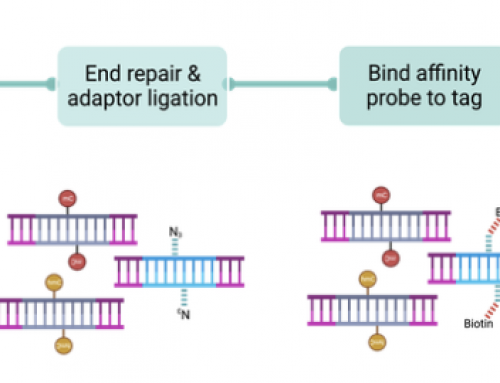
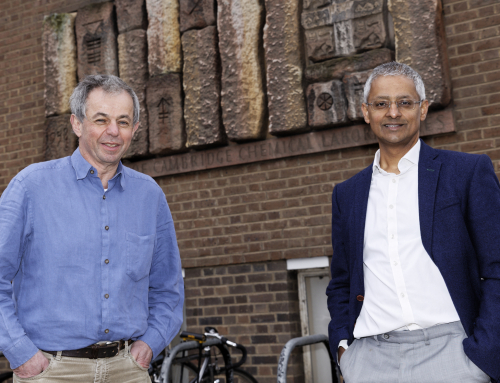
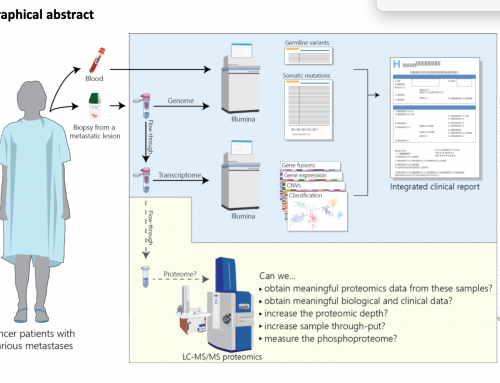
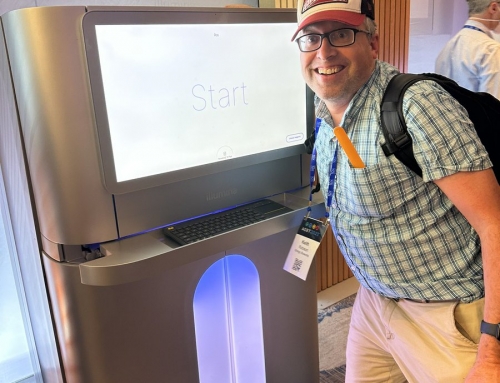
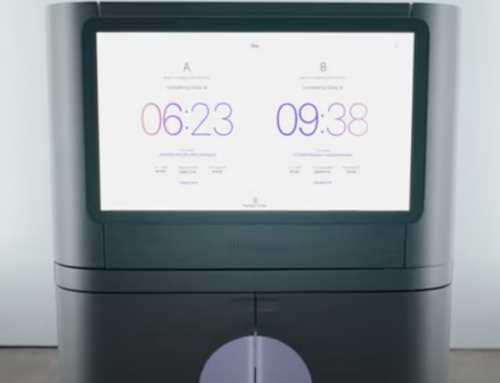



Leave A Comment